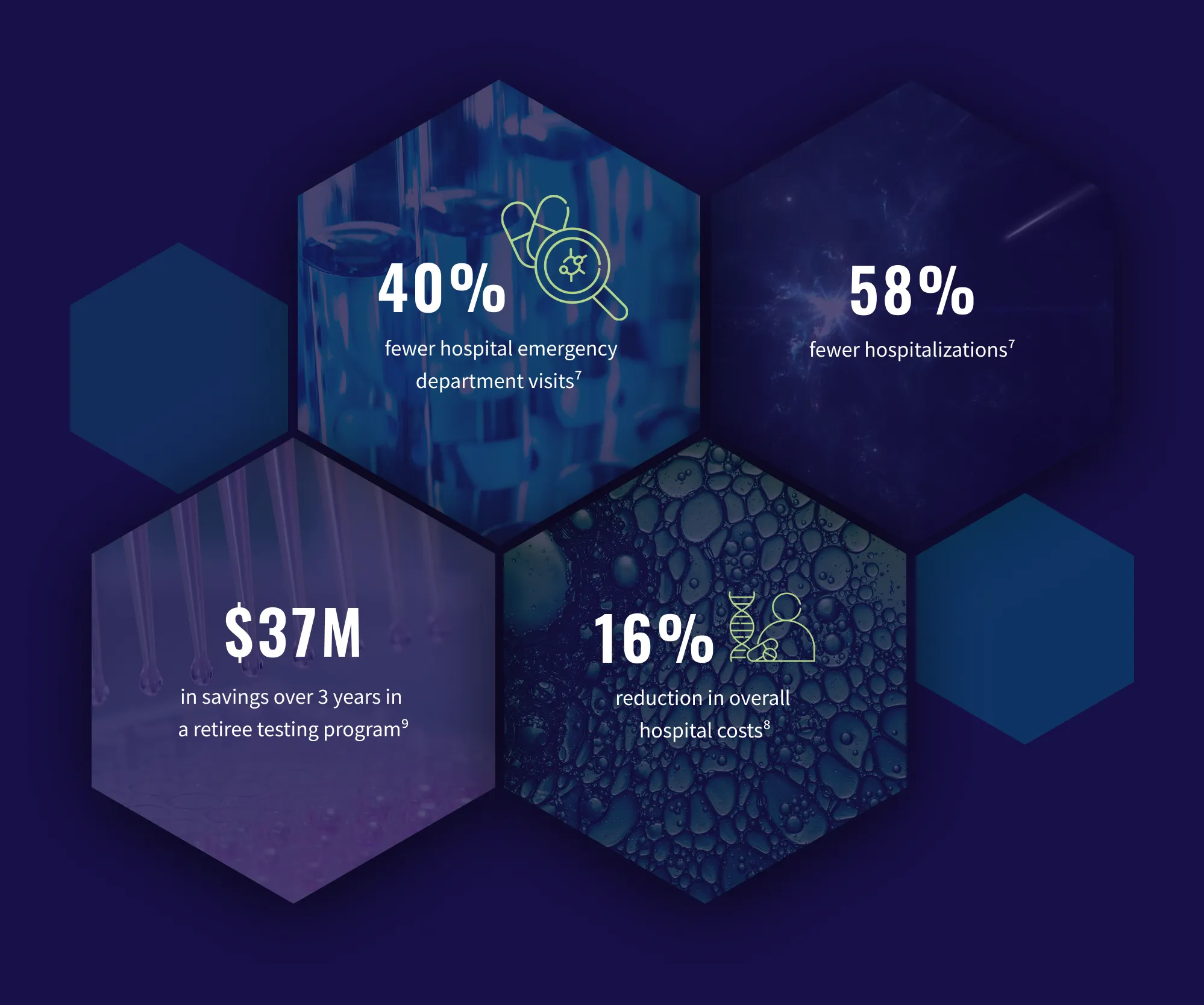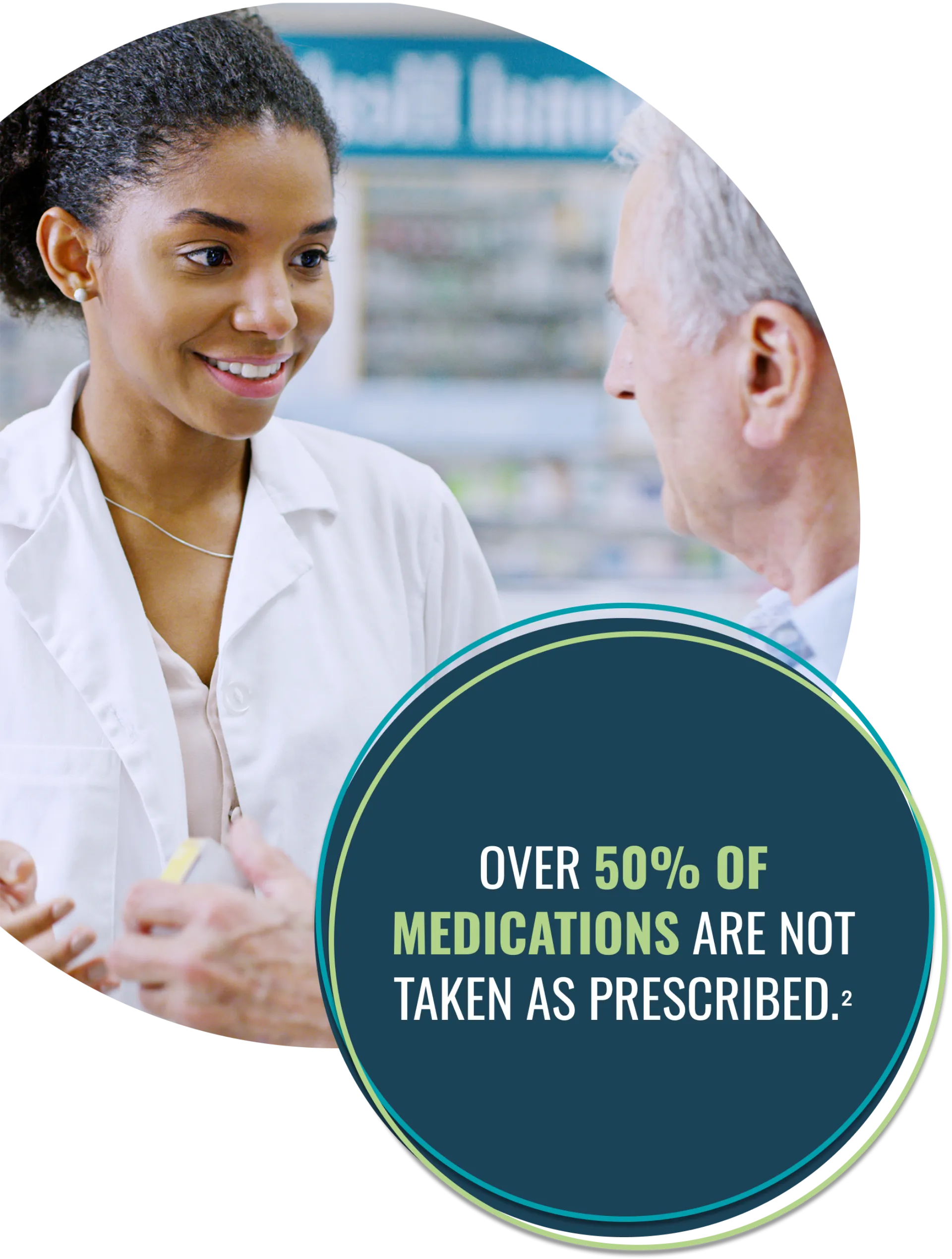PRECISION MEDICINE SOLUTIONS
Genemarkers offers high-quality, Medicare-approved PGx testing to optimize medication management for healthcare providers and patients. Our comprehensive panels cover medications across behavioral health, cardiology, pain management, and more.
What Is PGX? | Why Test? | Health Providers | Pharmacists | Patients | FAQ

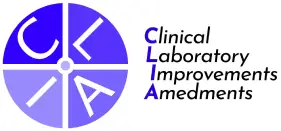

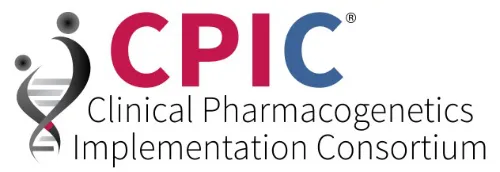
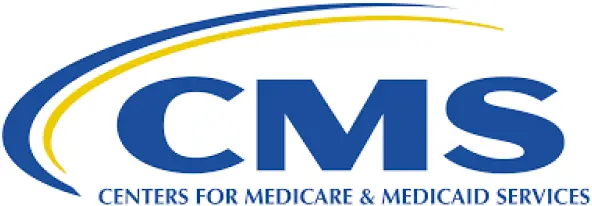





What Is PGX Testing?
Pharmacogenomics (PGx) is a precision medicine test that identifies how an individual’s genetics influence their response to medications. Studies have shown that 99% of people have a genetic variation in at least one key drug metabolizing enzyme¹, supporting the widespread need for a personalized approach to prescribing.
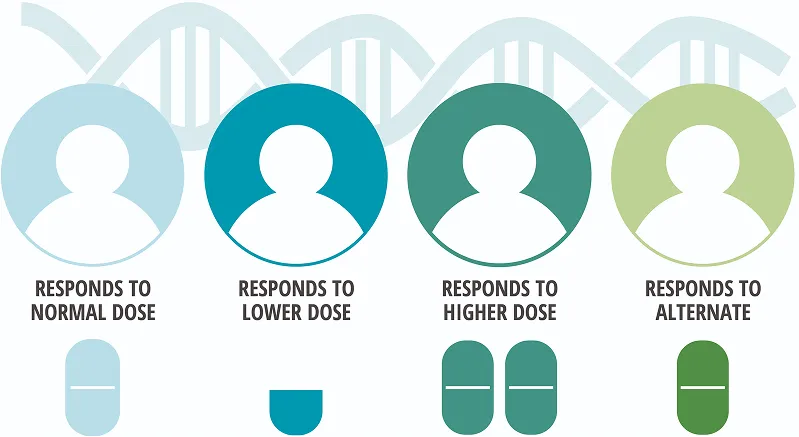
Adverse drug reactions are the 3rd leading cause of death⁷ in the US and cost the health system over $500B per year⁵. Over the past several years, there has been a significant increase in the number of studies demonstrating the clinical utility of PGx testing and several health care organizations, including the American Heart Association, have endorsed testing.
PGX TESTING
FOR HEALTHCARE PROVIDERS
PGx testing – a precision medicine-based tool – gives health care providers the power to optimize each patient’s medication regimen based on their genetics. At Genemarkers, we are passionate about the health of your patients. That’s why our PGx test panels utilize the highest levels of clinical evidence established by organizations, including the Clinical Pharmacogenomics Implementation Consortium (CPIC) and the FDA. Our reports are easy to interpret and integrate into clinical practice.
Discover how Genemarkers’ PGx solutions can transform the future of your patients’ health.
PGX Testing
For Pharmacists
Genemarkers recognizes that pharmacists play an important role in a patient’s medication journey. PGx testing can help to increase medication adherence and is ideally suited for Medication Therapy Management (MTM) and Comprehensive Medication Management (CMM) programs. To help support pharmacists implement PGx, we have developed a turnkey pharmacy program.
Proud to be chosen as a partner by CPESN.

PGX TESTING FOR INDIVIDUALS (YOU!)
PGx testing offers a proactive approach to managing your health. Together with your healthcare providers, you can use this important information to select medications that are more likely to work for you, reducing the risk of side effects and saving time and money that may be wasted on a trial and error approach.
Frequently
Asked Questions
Genemarkers PGx Tests are doctor-prescribed tests that can help your healthcare provider optimize your medications. Genemarkers’ tests are validated to the highest scientific and clinical standards. Our tests do not provide results for diagnosis of genetic diseases, ancestry, cosmetic features, or similar information that may be provided by certain direct-to-consumer tests.
Genemarkers offers several PGx tests. All of the tests provide information to help your health care provider select medications and dosages that will work the best for you based on your genetics.
- PsychPainMarkers – includes analysis of 3 genes and provides guidance on 75 medications used to treat behavioral health and pain management.
- PGxMarkers – includes analysis of 13 genes and provides guidance on 129 medications used to treat a wide range of health conditions, including behavioral health, pain management, cardiovascular, gastrointestinal, hematology, infections, rheumatology, transplantation, urological and others.
- PGxMarkers PLUS – includes analysis of 20 genes and provides guidance on 138 medications used to treat the clinical conditions listed for the PGxMarkers test, plus additional information regarding genetic risk factors. NOTE: This test is not covered by insurance.
Genemarkers is prescription only, which means you need to work with a licensed healthcare provider to get started. Contact us to find a provider near you or for information to bring to your provider.
In the United States, only pharmacists with collaborative practice agreements in place, pharmacists in California with Advance Practice Pharmacist Certifications, or pharmacists in New Mexico with Pharmacist Clinician certifications can order our tests.
The test is performed using DNA collected from a cheek swab. The swab can be administered by your health care provider in their office or the test kit can be sent to your home.
Results are typically available within 7-10 business days from the time the test kit is received at our lab.
PGx testing may be covered by your insurance based on medical necessity. Upon receipt of your test, Genemarkers will verify your insurance. If the test is not covered, we will contact you to discuss payment options before running the test.
- Medicare plans cover tests that meet medical necessity at 100%.
- Medicare Advantage plans cover tests that meet medical necessity and may have out-of-pocket costs due to co-pays and deductibles.
- Commercial plans may cover the test based on the specific plan and medical necessity. There may be out of pocket costs due to co-pays and deductibles.
- Medicaid: some states cover PGx testing based on medical necessity.
Costs vary depending on the type of insurance you have. You can use funds from a Health Savings Account (HSA) or Flexible Savings Account (FSA). We offer payment options and affordable plans to help alleviate any out-of-pocket costs.
Genemarkers follows strict policies designed to keep your personal health information secure. We do not sell your data or remaining genetic material to any third-party companies.

